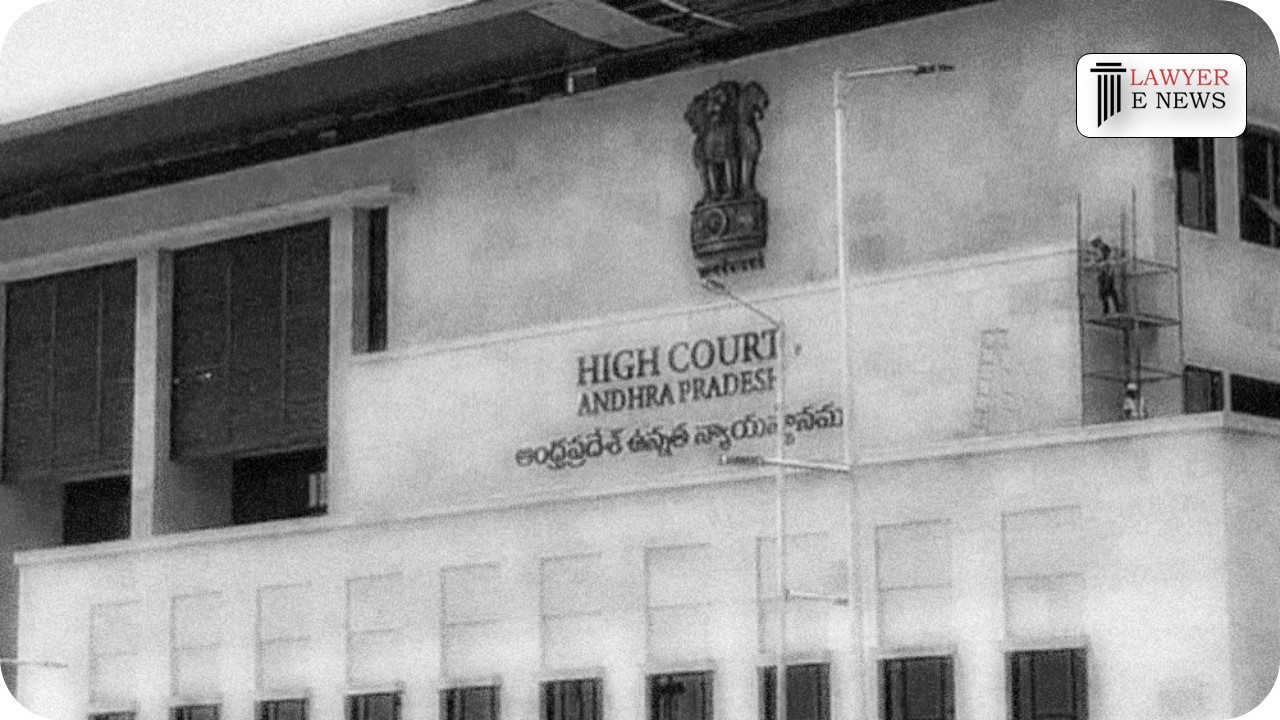-
by sayum
14 February 2026 2:22 PM



High Court upholds trial court’s decision, emphasizing the necessity of robust documentary evidence in financial disputes.
The High Court of Andhra Pradesh has dismissed an appeal challenging a lower court’s judgment in a case involving the recovery of money based on credit transactions for yarn purchases. The judgment, delivered by Justice Venuthurumalli Gopala Krishna Rao, upheld the trial court’s decision, affirming that the defendants failed to substantiate their claim of debt discharge with adequate documentary evidence.
Facts of the Case:
The appellants, V.D. Thyagarajan and his son V.T. Sateesh, had contested the trial court’s decree that ordered them to pay Rs. 88,070.50 with 6% annual interest to the respondent, V.K. Subramanyam Brothers, a registered partnership firm engaged in the yarn trade. The dispute arose from transactions conducted between May 1995 and August 1996, where the defendants purchased yarn on credit but allegedly failed to clear the dues despite making some payments.
Credibility of Documentary Evidence:
The High Court meticulously examined the documentary evidence presented by both parties. The plaintiff supported their claims with Ex.A1 to Ex.A9 credit bills, which detailed the transactions and outstanding dues. The court noted that the defendants’ claim of having paid the debt was not corroborated by credible evidence. “The defendants’ burden to prove discharge of debt was not met,” the court observed.
Defendants’ Admissions and Lack of Proof:
Justice Rao emphasized the significance of admissions made by the first appellant (DW1) during cross-examination, where he acknowledged the transactions under Ex.A1 to Ex.A9 and admitted making certain payments. However, these payments did not cover the entire debt, and no documentary proof was provided to substantiate the alleged discharge of the remaining amount. The court noted, “The evidence of DW1 clearly shows the defendants failed to file relevant documentary proof to show that they discharged the entire amount to the plaintiff.
Legal Reasoning
The court reiterated the principles of evidentiary burden in civil cases, particularly in financial disputes. It stated that while the defendants contended they made payments via cheques and cash, they failed to produce corresponding receipts or bank records to prove these transactions were credited to the plaintiff’s account. The court found the plaintiff’s ledger and documentary evidence consistent and credible, leading to the conclusion that the defendants’ assertions were unsubstantiated.
Quotes from the Judgment:
Justice Rao remarked, “The defendants admitted about the purchase of yarn under Ex.A1 to Ex.A9 credit bills. The total amount covered by these bills was not fully discharged as claimed, and the absence of supporting documentary proof further weakens their case.”
The High Court’s decision to dismiss the appeal underscores the judiciary’s commitment to upholding contractual obligations and the necessity of robust documentary evidence in financial disputes. By affirming the trial court’s findings, the judgment reinforces the importance of maintaining accurate and reliable records in business transactions. This decision is expected to set a precedent for similar cases, highlighting the critical role of documentary evidence in proving financial claims.
Date of Decision: July 04, 2024
V.D. Thyagarajan & Anr. V. V.K. Subramanyam Brothers
